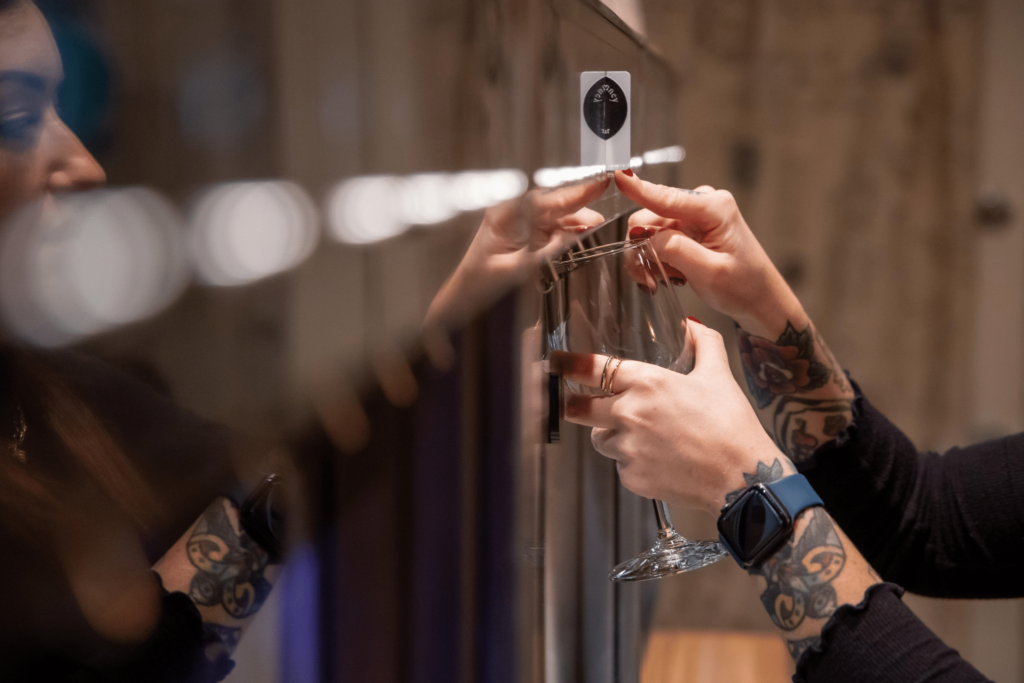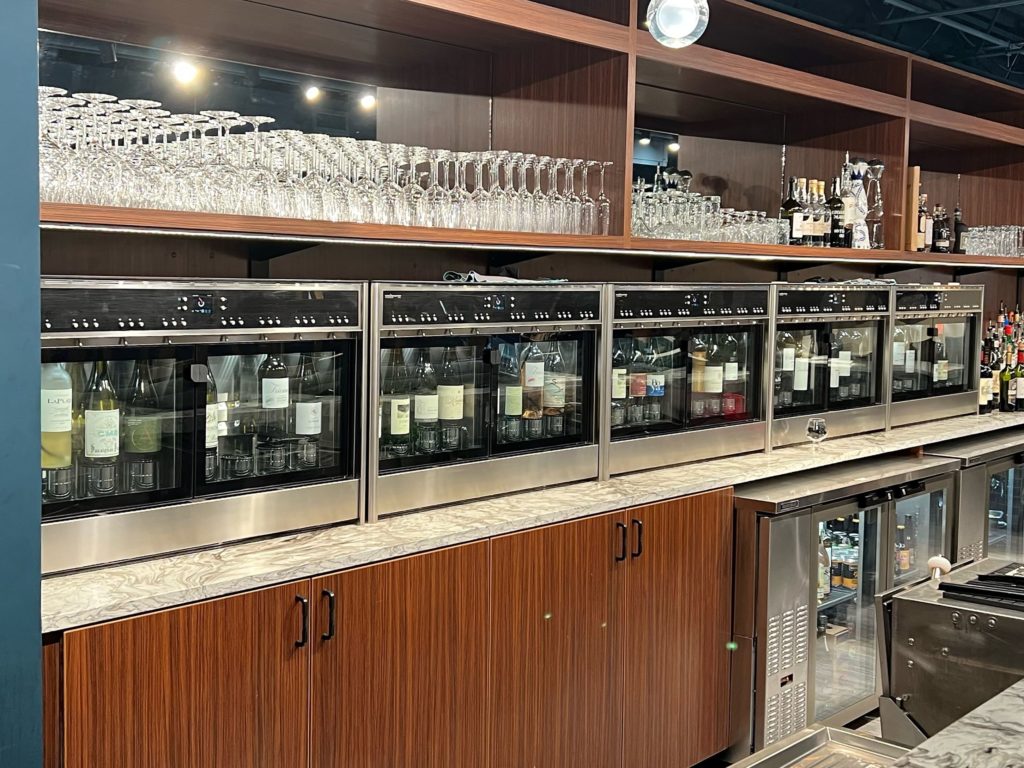
Maintaining the quality of wine boils down to one thing: preservation. Unless you find ways to prevent bottles from spoiling, controlling inventory could be significantly more problematic when it doesn't have to be such a challenge. You'd be wrong to assume that the biggest concern is overpouring wine by the glass. Serving too much wine plays a factor, but it's far from the most important.
The solution is usually to rely on thermoelectric-powered wine refrigerators, and they are effective to a degree. These machines rely on electricity to keep the fridge at a steady temperature. Still, you have to wonder how effective they really are because people constantly open and close the doors throughout the day. Thankfully, there's an alternative: gas wine preservation systems, which seal bottles with nitrogen and argon instead.
Installing a professional wine preservation system is now the go-to solution to maintaining wine quality, especially in places that don't necessarily sell drinks at a high volume. The benefits are many, and the only catch is that you have to start with the proper methods to get the most value from a system like a nitrogen wine dispenser.

Wineries seal bottles with corks or plastic stoppers to prevent oxygen spoiling the wine. As soon as wine comes into contact with the atmosphere, it immediately starts to oxidize, which is actually a good thing. Wines "open up" as their aromas and flavors stand out once the wine is properly aerated. The catch is that the same process also eventually spoils the wine.
You can always tell wine has gone bad by its maroon-like color, musty smell, and awful taste. The bitter taste of vinegar is unmistakable, and wine should never taste like that. And you certainly shouldn't serve suspect wine to guests. You want a wine's tannins to come through, not bitterness, once it starts to rot, so the next question is this: what other factors make wine not last as long as it should? The answer is storing the wine at the wrong temperature and humidity levels.
It's also just as harmful to leave wine bottles in direct sunlight or a room with a high humidity level. Wine spoils when you leave it open without sealing it again, but it won't last forever. Yet, it's possible for wine to spoil inside of the bottle before you even open it. That's the reason why temperature and humidity play a critical role. You won't be able to prevent wine from going bad, but you're not helpless either.
If you keep wine at the wrong humidity level, moisture can seep into the bottle through the cork. Cork itself rots, so if air starts getting into the bottle, even a tiny amount can slowly make the wine sour. Heat does the same thing, but it affects how the wine feels on the palate. Wine exposed to sunlight for too long will not only taste awful, but it'll be thinner and "weaker" like watered-down coffee. Either way, the best way to preserve wine and avoid both of those problems altogether is to use something like an argon wine dispenser and stop using a standard wine fridge with no humidity controls.

A gas wine preservation system is ideal for preserving wine for the long haul if you don't sell dozens of bottles per night. Not only do these machines use gas to seal bottles, but they also pour the glass an exact amount. There's less risk of overpouring, which is also great for inventory control, although you have to wonder why using gas is better in the first place. If you keep the wine in a special refrigerator or cooler, you won't have the problem of fluctuating temperatures and humidity. The environment inside each opened bottle of wine will be at a steady temperature. There's no need for the cooler to consume a lot of energy because using gas comes with many advantages.

Among many other benefits, gas makes it easier to keep wine fresh longer. Standard wine refrigerators might still be around, but that's changing by the day. Nowadays, it's not about affordability because a preservation system is always well-worth the investment. The advantages include things like:
When you make storing and serving wine more efficient, it lowers costs while improving the guest's experience. A wine will taste as fresh as the day you opened it, but you have to use a dispenser by the glass, or else you're not really solving the preservation problem. Not only that, but these devices come with very few downsides. The cooler may vibrate and be slightly noisier; however, it's not noticeable unless the area is quiet.
Are you curious about what else a gas-based preservation system can do? Try one of our state-of-the-art wine dispensers to experience the benefits for yourself. If you truly want to maximize profits, a standard wine cooler won't do the job because you'll ultimately pay more for electricity and maintenance. The fridge will have a minimal effect on how fast wine spoils. In this light, WineEmotion's dispensers are an ideal solution.

WineEmotion continues to push the envelope when it comes to wine preservation with the most advanced cooling system for making wine last as long as possible. Among other offerings, we sell sleek, state-of-the-art wine refrigerators coolers and give restaurants and hotels a better way to pour wine by the glass, control stock, and preserve the wine too. Overpouring wines is an issue you have to address with bartenders and servers, so a wine fridge gives you a way to take that hassle off their hands to free up their time to serve guests. In other words, you can say bye to ripped corks, wines that spoil quickly, and low sales by the glass.
The dispenser keeps each bottle fresh after opening by sealing each with a tiny amount of gas so the aromas and flavors last as long as possible. The gas replaces oxygen to preserve the wine, creating a barrier that keeps wines tasting great for days afterward. Usually, an open bottle of wine only lasts about three to four days before souring, but wine lasts much longer with our wine fridges and dispenses, and it will still taste the same as the day you opened the bottle.
Are you curious about what else our compressor technology can do? Click to see our complete line-up and learn more about the different specifications of each fridge.
